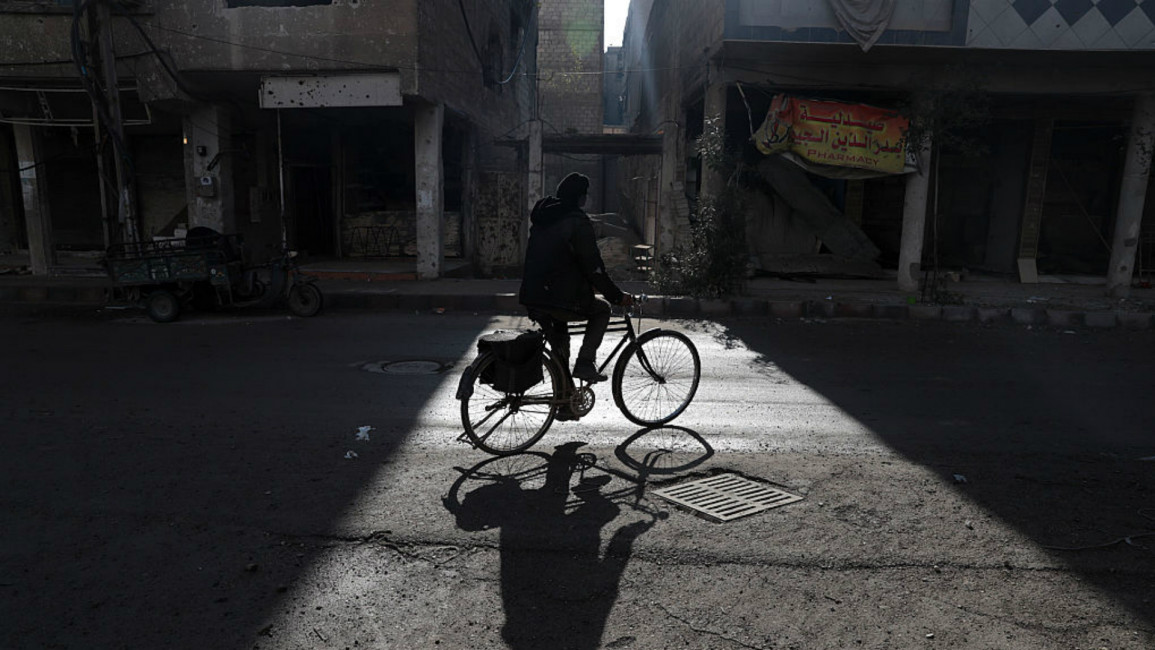
Syria's ceasefire susceptible to sabotage
The latest ceasefire in Syria, negotiated mainly between Turkey, Russia and Iran, recently came into effect after the Assad regime and opposition groups, responded to the demands of their foreign backers.
With exceptions in Western Syria, particularly Idlib and Wadi-Barada near Damascus, fighting seems to have ebbed, for now. This comes after the previous ceasefire agreements, brokered by United States and Russia in February and September of 2016, collapsed within weeks of signing.
The fact that the regional powers have put their buck behind this latest agreement and the key players have shown willingness to capitalise on the halt in fighting into a permanent political solution to this grueling conflict later during peace-talks in Astana has surrounded it with a note of optimism.
However, the fragility of this thaw must not be underrated. Multiple rebel groups have already issued threats, intending to abandon the ceasefire if the violations by regime forces, especially in rebel-held Wadi-Barada near Damascus, continue.
On Friday, civil society groups and activists across Syria held street protests against the regime, expressing concerns over the fact that this agreement could pave a way for Assad to remain in power for much longer.
More recently, the rebel groups have also pronounced their unwillingness to participate in the Astana negotiations, accusing regime-forces of heavy breaches in the ceasefire. Also, the ceasefire excludes some of the most powerful armed groups in the Syrian battlefield, without whom this delicate lull could soon blow up.
 |
The ceasefire excludes some of the most powerful armed groups in the Syrian battlefield, without whom this delicate lull could soon blow up |  |
Jabhat Fatah al-Sham (al-Nusra Front), previously a Syrian affiliate of al-Qaeda, has been excluded from this agreement. A dominating force in heavily populated Idlib province, Jabhat al-Sham's exclusion might pave the way for regime and its backers to carry out an Eastern Aleppo-like campaign with total impunity.
This could bring about catastrophe on the scale of Eastern Aleppo, or even greater, given that the terrorist label that al-Sham carries will deter all governments from coming to its aid. Ahrar al-Sham, the second most powerful armed group operating in Idlib, expressed reservations about this agreement has also refused to be a part of it.
The Syrian Democratic Forces (SDF), mainly comprised of the Kurdish YPG, have also been left out of the truce, probably at Turkish insistence. This group, that has proven to be the most effective ground force against IS, controls significant territory in Northern Syria, forming part of its Rojava 'statelet'.
Turkey views the build up of Kurdish forces near its border as the most potent regional threat that could amplify its domestic Kurdish problem. However, Ankara has failed to recognise that its belligerence towards the SDF could shift the military focus of the group entirely, from IS to preserving the territorial and security interests of Rojava.
 |
This agreement could pave the way for Assad to remain in power for much longer |  |
This would eventually benefit IS and, considering the group's recent advances against Syrian regime in Palmyra, might amplify its recruiting capabilities.
Turkey also appears to be shifting its foreign policy increasingly closer to the Russian-Iranian orbit, realising that all-out regime change in Syria is now almost impossible.
In fact, Russia and Turkey might already have hit a tacit bargain regarding Kurdish presence in Northern Syria, with Russia favouring Turkey's interests over those of a nascent, autonomous entity having no formal international recognition.
The Iranian-backed sectarian militias operating in Syria, and emboldened by their recent successes in Aleppo could also play spoilsport in this ceasefire deal.
 |
The humiliating exclusion of United States from this entire process, is also a serious potential drawback. |  |
The limits of Russian and Iranian leverage over these militias were recently demonstrated in their rogue attacks on the planned evacuation of civilians and rebel fighters from Eastern Aleppo.
The humiliating exclusion of United States - which still bolsters multiple rebel groups across Syria - from this entire process, is also a serious potential drawback.
The incoming US administration has expressed its desire to move closer to Russia's position on Syria, though the the intelligence and security establishment in the United States may wish to step up its support for the rebel groups based in Southern Syria.
The end in military hostilities is always a welcome step in any conflict but when the terms are dictated by a cluster of regional and international configurations rather than indigenous concerns, the lull is hard to sustain. This has been observed on many occasions in Syria itself.
The latest ceasefire, when examined closely, looks more likely to be motivated by the interests of consolidating the regime (and its allies') recent military gains, together with allaying Turkish anxieties concerning Kurds, than any genuine concern for alleviating the protracted suffering of Syrian people.
Umar Lateef Misgar is a political analyst. His work has appeared in The Independent, Truthout.org, London School of Economics Human Rights Centre blog, and elsewhere.
Opinions expressed in this article remain those of the author and do not necessarily represent those of The New Arab, its editorial board or staff.




